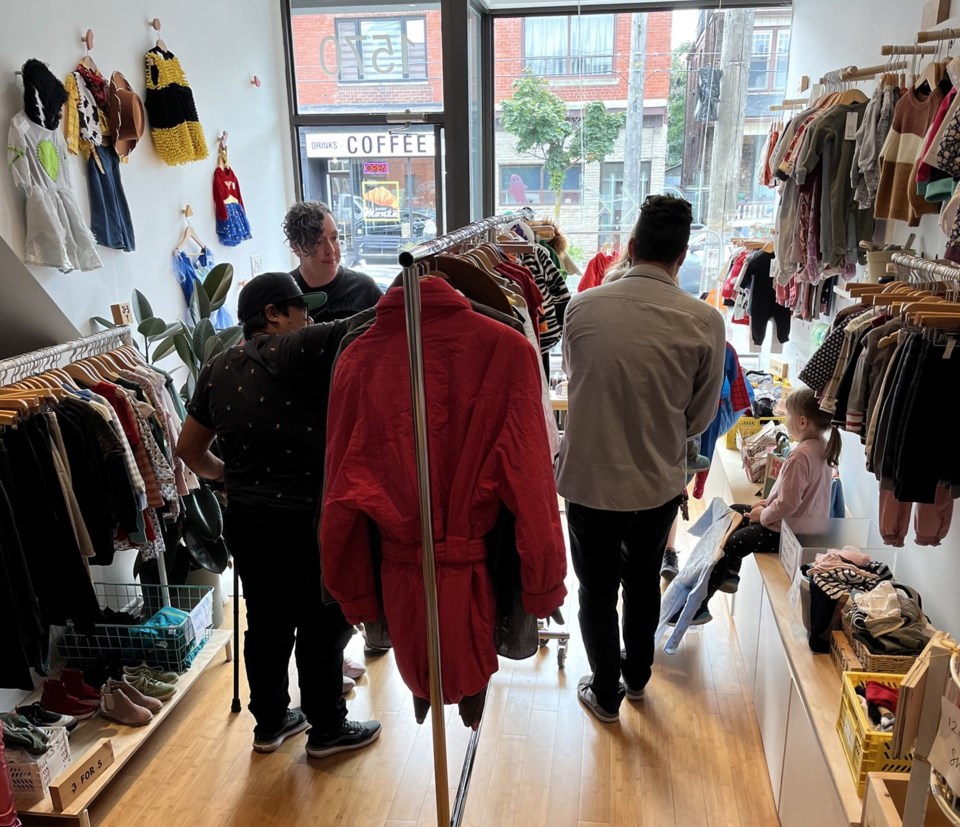This spooky season some people are opting to recycle old costumes in a bid to make Halloween more sustainable – and affordable.
Events promoting costume swapping, recycling or mending are popping up in communities across the country, and one expert says they're sorely needed to counter the overconsumption and waste that Halloween triggers every year.
Oana Branzei, a professor of strategy and sustainability at Western University, says Halloween costumes represent "the most harmful form of consumption" since they're typically made of multiple types of polyesters and plastics that are difficult to break down. They're also often marketed as single-use products and end up in the landfill after just one wear.
"They have different materials that are never separated and therefore they end up in the ... longest-term decomposing piles," Branzei said.
One Nova Scotia municipality is citing its waste reduction efforts as the inspiration for a "Costume Fix 'n' Swap" event later this month, where people can drop off unwanted Halloween costumes, grab used ones and get someone to fix damaged trick-or-treating outfits.
Organizers of the Oct. 19 event in East Hants, north of Halifax, say someone with cosplaying experience will also provide advice on making budget-friendly costumes.
"There's about 30,000 tons of textiles landfilled in Nova Scotia each year, so this event really ensures that some of that gets diverted," said the municipality's waste compliance officer, Ciera Robinson.
Textiles are the fifth largest type of plastic waste sent to Canadian landfills, with approximately 280 kilotons of synthetic textile products discarded in 2020, according to the federal government. Synthetic textiles are made from materials such as polyester, nylon and acrylic – all common elements in Halloween costumes and decorations.
Rise Consignment, a thrift shop in Victoria, will be holding its first-ever Halloween costume swap on Tuesday, with a focus on promoting sustainability. The shop is charging a $10 fee for the swap, with all proceeds going to a local organization supporting youth.
"I've just in the past kind of tried to educate people around this time of year about how wasteful Halloween can be and why they don't need a brand-new plastic costume," store owner Rylie Tarry said, adding that the goal is to "encourage people away from buying new, and buying crappy things."
TOKKI, a Toronto-based children's second-hand clothing store, held a seasonal swap last week with more than 75 kids turning up to get a Halloween costume. This was the seventh year the shop has hosted a costume swap.
"It's a great way to just reuse other kids' things from the year before," TOKKI owner Amanda Newman said. "Having the opportunity to just swap out a costume rather than have to buy one also makes it a more affordable option and maybe a little less stressful in picking one as well."
Branzei, the Western University professor, said she hopes Halloween costume swaps will lead to broader conversations about other forms of waste.
"This is a lever of change that has immediate impact. The material problems are the costumes, but the underlying problem is our consumption habits," Branzei said.
This report by The Canadian Press was first published Oct. 14, 2024.
Alex Goudge, The Canadian Press



